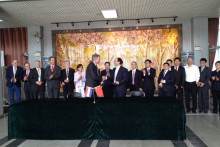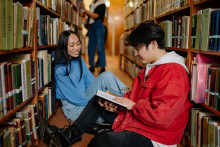While security agencies and analysts are warning ever more loudly of the risks of sharing knowledge with researchers from China, the universities are responding slowly and naively, according to an article published by research platform FTM.
FTM carried out an investigation along with RTL Nieuws and media from Germany, Spain, Belgium, Denmark, Italy and Switzerland. They came across all kinds of articles about technology that could also have military applications, such as underwater sensors and swarms of drones.
Superpower
News items and reports about the cooperation with China have emerged with considerable regularity in recent years. They say that China wants to modernise its army and develop into a military and economic superpower and that it wants to exercise a political influence in the west.
For example, university magazine Delta published a series of articles about research by Delft University of Technology that is unintentionally assisting the Chinese army. The cooperation with China allegedly goes further than Delta reported at the time. One of the writers of the Delta article, Annebelle de Bruijn, is also taking part in the FTM investigation.
Delft University of Technology has the largest number of joint publications with researchers from the Chinese army, according to FTM, followed by the University of Amsterdam, Leiden University and Eindhoven University of Technology.
No hard line
The Ministry of Education lays the burden of responsibility for knowledge security largely with the universities and is not taking a hard line for the time being. When it emerged that a VU Amsterdam human rights centre was receiving Chinese funding, Education Minister Robbert Dijkgraaf responded that funding from China is not always inappropriate but that the institutions need to be wary of the dangers. The minister is, however, ready to make ‘binding agreements’ about the knowledge security policy of the institutions.
At the beginning of this year, the government opened a knowledge security service desk to which institutions and researchers can go with their questions. A guideline for international cooperation has also been drawn up, although China is barely mentioned in it.







